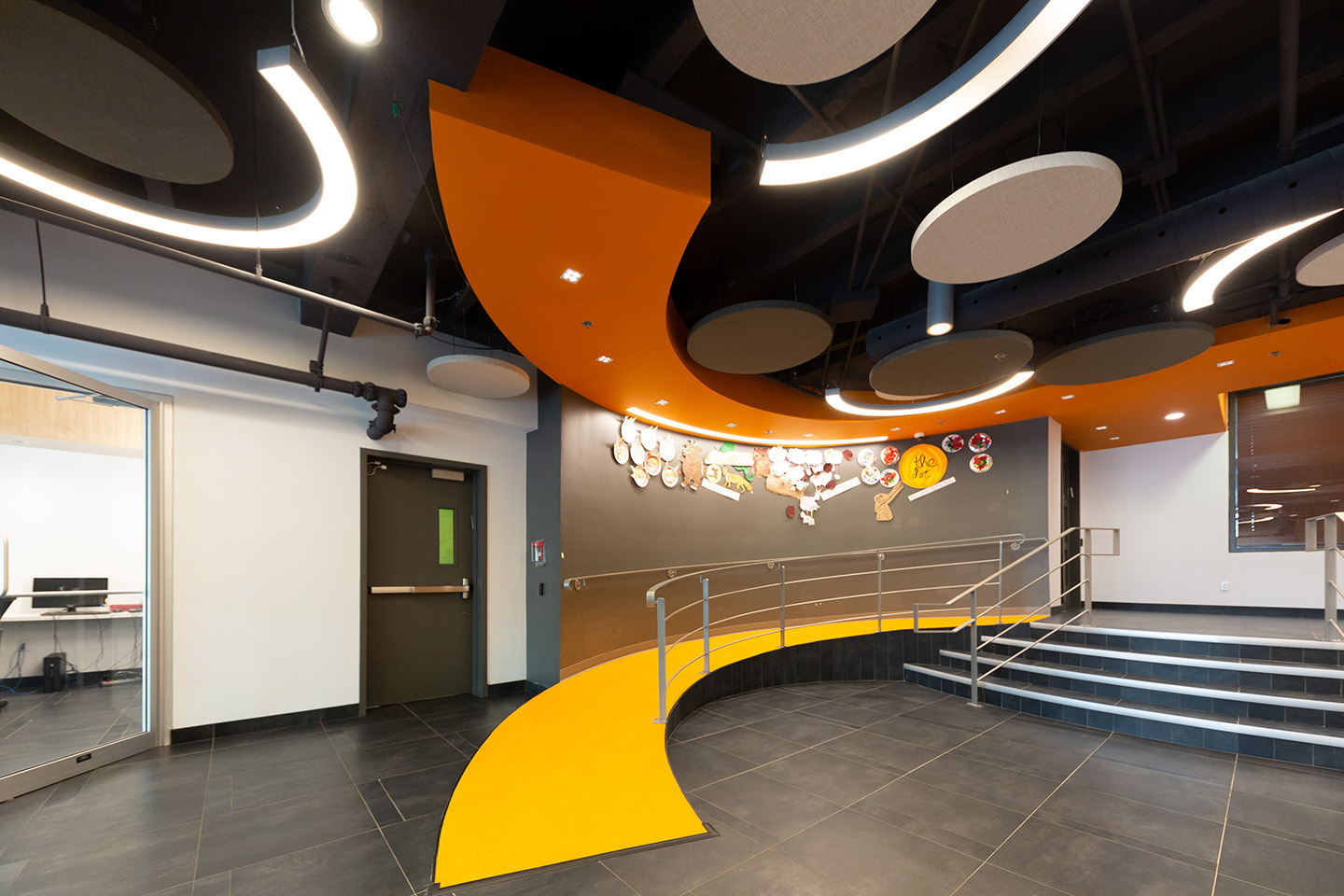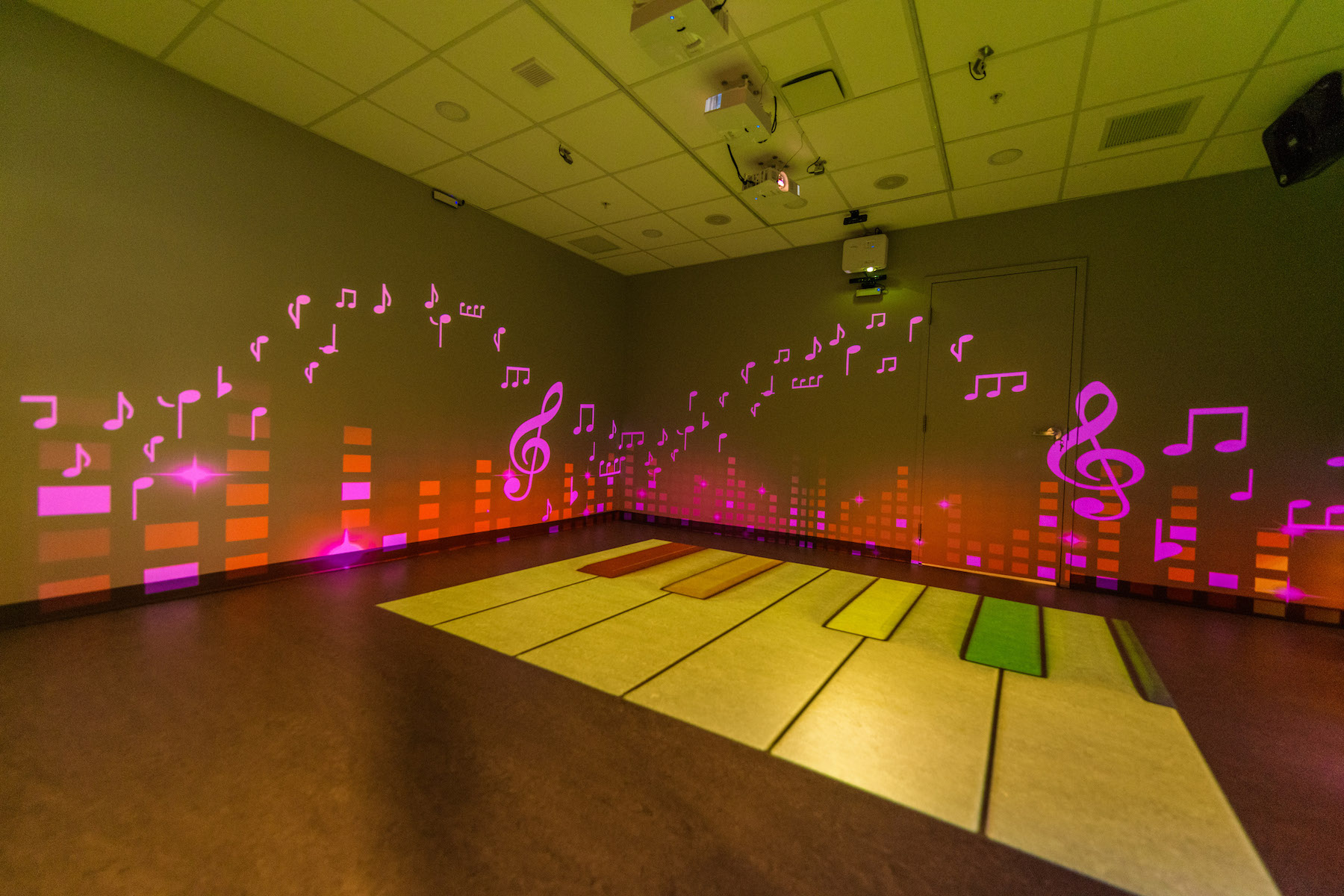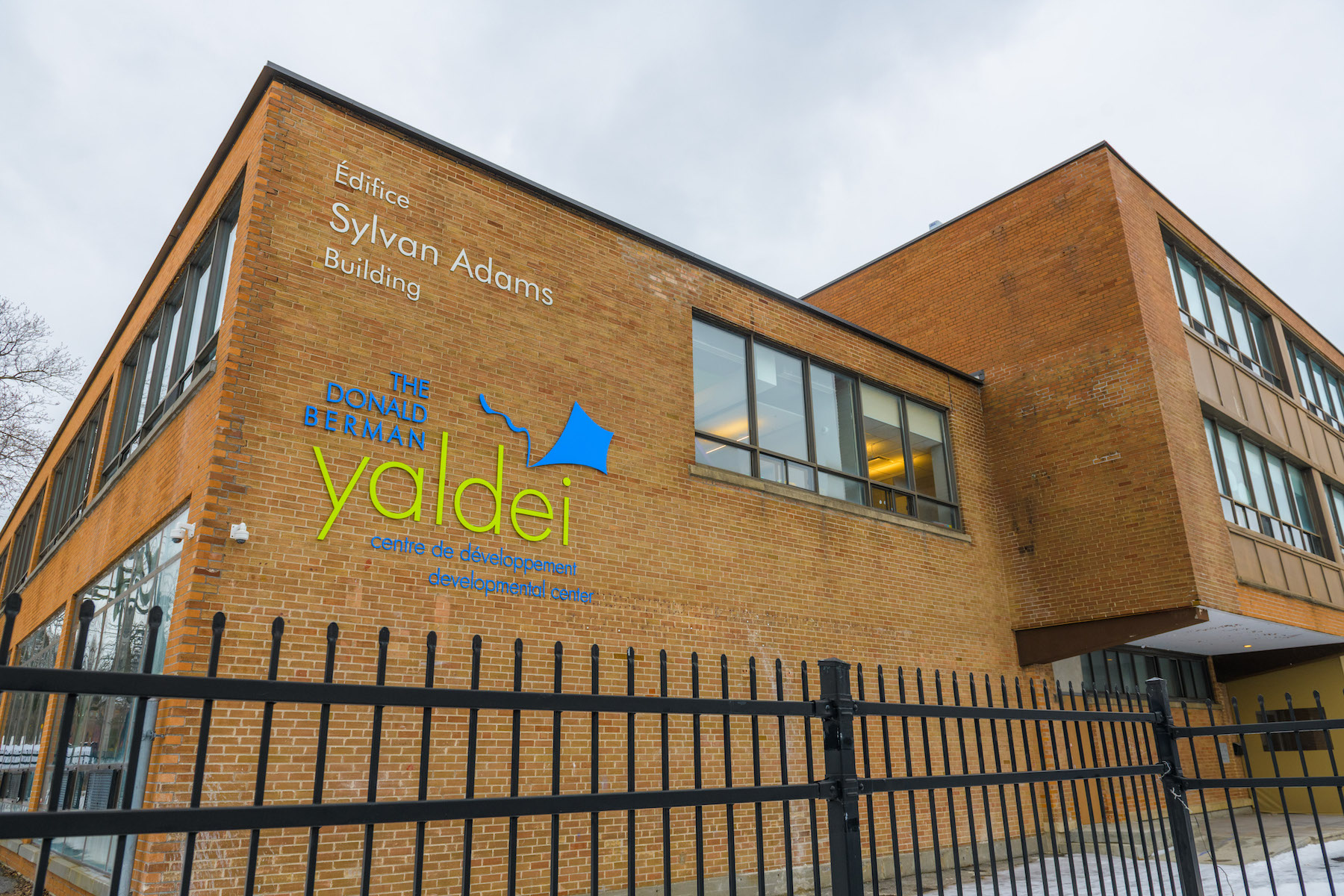Last fall, the Yaldei School in Montreal, Quebec, which provides education and therapy to children ages 4 through 16 with intellectual disabilities, completed a $4.5 million renovation of the three-story former parochial school that it had moved into in 2016. The goal of this project, by the firm Stendel + Reich Architecture, was to create spaces that relieve students’ anxiety and, according to the school, make things fun.
“As a true all-under-one-roof facility, at Yaldei a child can receive every support [he or she needs], and benefit from the collaboration of a multidisciplinary team,” the school stated through a spokesperson. “As such, we are constantly seeking to improve and expand our range of services and therapies modalities, with the aim of reaching every child, and giving each one the best change at success.”
To achieve this, Cliff Stendel, associate principal at Stendel + Reich, studied extensively about the students’ different disabilities, and drew knowledge as well from his firm’s previous experience designing Alzheimer’s facilities.
For example, Alzheimer’s patients often have trouble navigating turns in corridors. So Stendel redesigned Yaldei with oval corridors where, if students turn the wrong way, they just follow the corridor around to where they started.

School uses light as therapy
Stendel also realized, through observation, that students with learning disabilities get distracted easily. To address this, the remodeling of therapy rooms excluded direct windows to the outside; instead, glass walls face the corridor, and on the other side of the corridor are windows that let in sunlight.
Lighting is key to this project. Stendel installed thin light strips in various designs to minimize the effect of lighting on hypersensitive children. So-called RGB lights (for red, green, and blue) also contribute to the children’s therapy, and lend a sense of playfulness to the environment.
The school is roughly 40,000 sf, and was remodeled in phases:
• In 2018, renovation of 7,505 sf on the third floor, which is mostly classrooms for older students, was started, as was 335 sf of washroom space and a 1,475-sf administration area. Floors and ceilings were replaced, new lighting and storage installed, and the rooms were freshly painted. The third-floor reno was completed last fall, and included the addition of eight classrooms, a revamped MEP/HVAC system, an accessible bathroom, a kitchenette in each classroom, and a teacher resource room and library;
• In 2019, the 12,355-sf second floor received a full renovation that included moving separate therapy rooms there, and converting a portion of this space to an early intervention area;
• In 2020, 6,410 sf of main classroom space were renovated, as were 6,425 of the first floor’s 10,580 total square footage.
This renovation project has allowed Yaldei School to grow. In the past few years, its enrollment has increased by 20 percent to 110. (The school has 165 registered students.) The school also collaborates with more than 25 schools in Montreal to provide services to a total of 250 intellectually challenged children per year.

As a result of its renovations, Yaldei Shcool recently initiated an early-intervention group for infants with multiple handicaps and intense physical needs; and added an Art and Social Skills group for girls with high-functioning autism spectrum disorder. These weekly groups help children learn social skills and use art to relieve stress.
Yaldei’s future plans call for adapting more rooms into fully equipped classrooms to meet anticipated enrollment increases.
Related Stories
| Aug 11, 2010
AGC unveils comprehensive plan to revive the construction industry
The Associated General Contractors of America unveiled a new plan today designed to revive the nation’s construction industry. The plan, “Build Now for the Future: A Blueprint for Economic Growth,” is designed to reverse predictions that construction activity will continue to shrink through 2010, crippling broader economic growth.
| Aug 11, 2010
Section Eight Design wins 2009 Open Architecture Challenge for classroom design
Victor, Idaho-based Section Eight Design beat out seven other finalists to win the 2009 Open Architecture Challenge: Classroom, spearheaded by the Open Architecture Network. Section Eight partnered with Teton Valley Community School (TVCS) in Victor to design the classroom of the future. Currently based out of a remodeled house, students at Teton Valley Community School are now one step closer to getting a real classroom.
| Aug 11, 2010
PCL Construction, HITT Contracting among nation's largest commercial building contractors, according to BD+C's Giants 300 report
A ranking of the Top 50 Commercial Contractors based on Building Design+Construction's 2009 Giants 300 survey. For more Giants 300 rankings, visit http://www.BDCnetwork.com/Giants
| Aug 11, 2010
Webcor, Hunt Construction lead the way in mixed-use construction, according to BD+C's Giants 300 report
A ranking of the Top 30 Mixed-Use Contractors based on Building Design+Construction's 2009 Giants 300 survey. For more Giants 300 rankings, visit http://www.BDCnetwork.com/Giants
| Aug 11, 2010
Report: Fraud levels fall for construction industry, but companies still losing $6.4 million on average
The global construction, engineering and infrastructure industry saw a significant decline in fraud activity with companies losing an average of $6.4 million over the last three years, according to the latest edition of the Kroll Annual Global Fraud Report, released today at the Association of Corporate Counsel’s 2009 Annual Meeting in Boston. This new figure represents less than half of last year’s amount of $14.2 million.
| Aug 11, 2010
Jacobs, HDR top BD+C's ranking of the nation's 100 largest institutional building design firms
A ranking of the Top 100 Institutional Design Firms based on Building Design+Construction's 2009 Giants 300 survey. For more Giants 300 rankings, visit http://www.BDCnetwork.com/Giants
| Aug 11, 2010
Texas school goes for traditional look
Children in McKinney, Texas, will have a new school to attend next year. The 92,213-sf Lizzie Nell Cundiff McClure Elementary School will provide 44 classrooms, library space, a science lab, an auditorium, and a practice gym. PBK Architects and contractor Cadence McShane are cladding the exterior in masonry and stone accents to give the facility a traditional look.
| Aug 11, 2010
Private school in La Jolla gets a much-needed facelift
Faced with an aging campus with cramped classrooms, crumbling infrastructure, and outdated technology, La Jolla (Calif.) Country Day School recently completed a modernization that will add a 7,800-sf kindergarten. An early childhood/preschool village houses classrooms and computer, science, and language art facilities.
| Aug 11, 2010
Massachusetts charter school undergoes expansion
A 31,000-sf expansion/renovation of Prospect Hill Academy Charter School, a K-12 preparatory public charter school in Somerville and Cambridge, Mass., will include a versatile central gathering space on the main floor for tutorials and other uses. New offices for college counseling, a writing center, and a senior study room also will grace the ground floor, with upper levels housing science lab...







